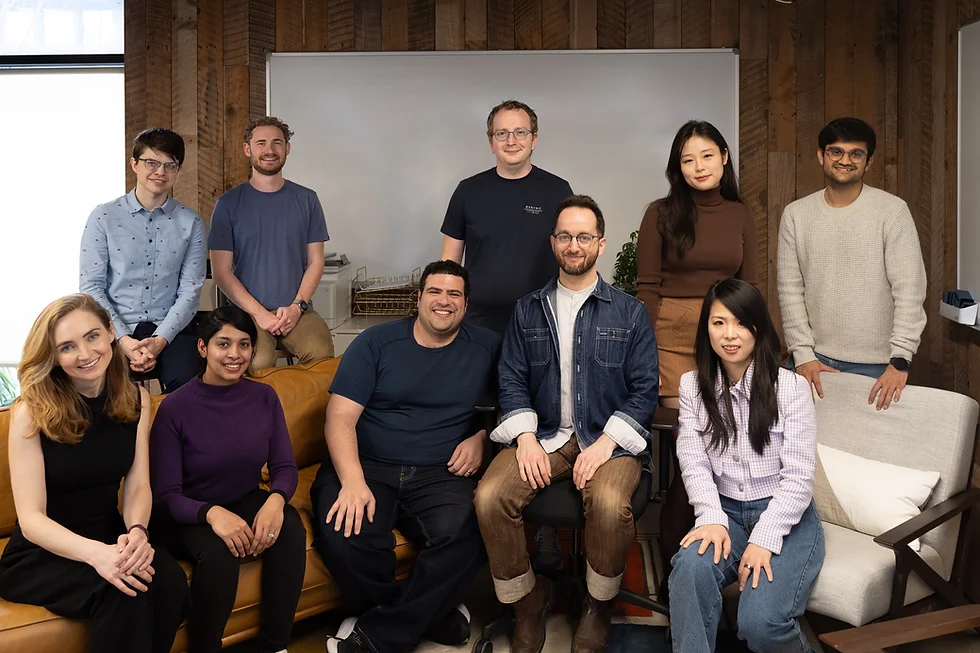Driven by breathtaking recent technology advances, the AI world has been buzzing with discussion and debate about superintelligence and “artificial general intelligence”—the question of whether and when AI will surpass humanity’s cognitive abilities.
The discourse intensified this summer when Google engineer Blake Lemoine publicly claimed that one of Google’s large language models, named LaMDA, had become sentient, generating a tidal wide of headlines and controversy (and leading Google to fire Lemoine).
Radical Partner Rob Toews presents his takes on these topics in his latest Forbes column. In short, Rob argues that the public discourse on these topics needs to be fundamentally reframed, with both sides of the debate off the mark in some important ways in their thinking about AI.
Lemoine himself weighed in on Rob’s article on Twitter, calling it “really insightful” (though noting that they disagree on a few points). We share an excerpt from the article below, which you can read in full at Forbes.
A basic principle about AI that people too often miss is that artificial intelligence is and will be fundamentally unlike human intelligence.
It is a mistake to analogize artificial intelligence too directly to human intelligence. Today’s AI is not simply a “less evolved” form of human intelligence; nor will tomorrow’s hyper-advanced AI be just a more powerful version of human intelligence.
Many different modes and dimensions of intelligence are possible. Artificial intelligence is best thought of not as an imperfect emulation of human intelligence, but rather as a distinct, alien form of intelligence, whose contours and capabilities differ from our own in basic ways.
What is the upshot of all of this? There is no such thing as “artificial general intelligence”. AGI is neither possible nor impossible. It is, rather, incoherent as a concept.
To define “general” or “true” AI as AI that can do what humans do (but better)—to think that human intelligence is general intelligence—is myopically human-centric. If we use human intelligence as the ultimate anchor and yardstick for the development of artificial intelligence, we will miss out on the full range of powerful, profound, unexpected, societally beneficial, utterly non-human abilities that machine intelligence might be capable of.
***
Rob writes a regular column for Forbes about artificial intelligence.
AI News This Week
-
AI pioneer Geoffrey Hinton receives prestigious Royal Medal from the Royal Society (University of Toronto)
AI pioneer and Turing Award winner Geoffrey Hinton has been honoured with the prestigious Royal Medal from the Royal Society, the U.K.’s national academy of sciences. Previous recipients include Charles Darwin and Geoff’s great-great-grandfather George Boole, whose work would form the foundations of modern computer science. Upon this latest recognition, Geoffrey credits the “extraordinarily talented set of graduate students and postdocs who were responsible for many of the breakthroughs in deep learning that revolutionized artificial intelligence over the last 15 years.”
-
How Artificial Intelligence can improve organizational decision making (Forbes)
As more companies understand and invest in the power of AI, the speed of innovation will increase. Gartner predicts that AI will eliminate 80% of today’s manual project management tasks by 2030. Functions from planning to data collection and reporting will be powered by AI, which can help predict outcomes using different data points like project size, contract type, and project management competence.
-
The AI system that picks carcinogens out of the chemical crowd (Nature India)
Human cells are exposed to myriad metabolites, generated when the body breaks down food, drugs and other chemicals. Many of them can convert healthy cells into cancerous ones. Current models for screening carcinogenic metabolites are expensive and time-consuming. An AI model developed at IIT in New Delhi may offer a faster screening alternative. Trained on the properties of more than 35,000 compounds, this new model can identify novel cancer-causing substances, classifying carcinogenic human metabolites depending on their abilities to induce oxidative stress, proliferation, genomic instability and anti-apoptosis. The model, nicknamed Metobkiller, virtually sifted through 217,921 metabolites stored in the Human Metabolome Database. It predicted that about 37.5% of the metabolites were carcinogenic. Of these, only 38 had been identified previously.
-
New AI-enabled, optical fiber sensor device could help monitor brain injury (ScienceDaily)
A new AI-enabled, optical fiber sensor device developed at Imperial College London can measure key biomarkers of traumatic brain injury simultaneously. People who experience a serious blow to the head, such as during road traffic accidents, can suffer traumatic brain injury (TBI) – a leading cause of death and disability worldwide that can result in long-term difficulties with memory, concentration, and solving problems. TBIs need to be continuously monitored during treatment, however, existing intracranial probes are capable of measuring only one biomarker (such as pressure or oxygen in the brain) at a time, requiring several probes inserted into the brain and increasing the risk of complications. Researchers have created a new device that combines the ability to monitor four biomarkers at once with machine learning algorithms that use previous data to predict biomarker concentrations based on obtained data in real-time. If optimized and proven for use in humans, the device could help hospitals more effectively monitor TBI.
-
Listen: AI for Good Medicine (IEEE)
Season 4 of AI for Good Medicine is now available. From drug development to healthcare delivery, the podcast series focuses on how AI technologies are making an impact on improving outcomes for patients. As a result of the global pandemic, the fourth season explores the growth of telehealth which has emerged as a common tool for healthcare delivery. In many sub-sectors of healthcare, front-line phone-based customer support teams are staffed by clinically trained employees. Radical Ventures portfolio company BirchAI supports the summarization and categorization of customer calls for these workers, delivering cost savings and efficiencies. AI technology of this nature unlocks insights that may fuel strategic product and business decisions for healthcare companies.
Radical Reads is edited by Leah Morris (Senior Director, Velocity Program, Radical Ventures).





